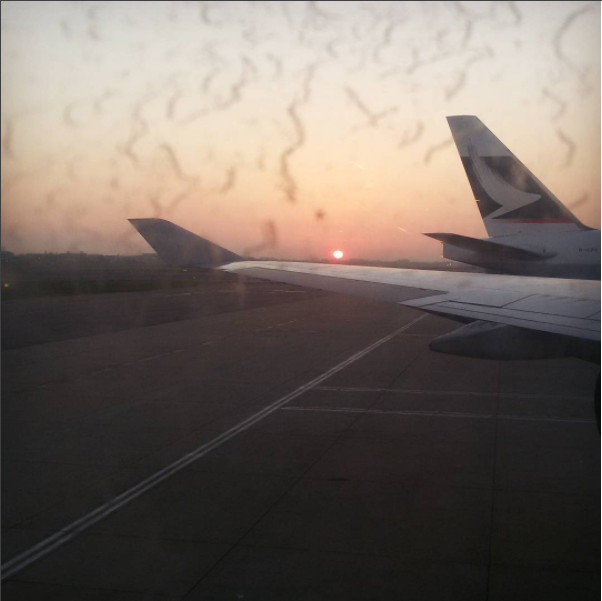“There are no foreign lands. It is the traveler only who is foreign.” — Robert Louis Stevenson
Sorry, Robert Stevenson, on two counts. First, I still haven’t actually read any of your books, but I swear they’re on my list. Second, I’m going to have to disagree with you on that lovely and popular quote of yours.
Because I’m starting to think that there are only foreign lands. That nothing is, after all, familiar or domestic. That when we spend a portion of time “abroad,” away from what was once home or something like it, we realize that “home” is just as strange, just as illogical, just as arbitrary as all the rest.
***
The sun is out in uncharacteristic force, and as I walk down the street in Chelsea, London, it reflects back at me with a grin off a row of tall, identical apartment buildings.
The walls are spotlessly white. The streets are free of garbage. The public transit runs seamlessly.
I have just arrived this morning from Cape Town, South Africa. And as I am coming to expect when I jump continents, I’m slightly bewildered by everything… The old lady in a mauve pantsuit and Ugg boots pushing her walker with one hand and holding her mauve hat with the other. The young men wearing shorts and T-shirts (whereas I have just pulled my down coat out of storage). The utter politeness of traffic on Kings Road.
Politics and economics, on the other hand, run parallel. Xenophobia and poor economic choices rule the day, here as much as elsewhere.
I digress. It is the strangeness that lingers with me today, and which I would attempt to describe. The slight eeriness of one of the places I consider a home base. A flutter in my stomach as I amble along the too-neat lanes and study the too-same rows of pretty buildings.
London.
London, where I stay for free. London, where I have friends, a climbing gym membership, and a regular cafe, supermarket, and aerial dance studio.
London, where I don’t need a map.
London, where I keep coming back, although I can never quite decide if I even like the place.
As I do in Cape Town, I have a community here. And so I return again and again, such that it has become familiar, evan banal, to visit.
Except, not this time. This time, it is the sense of strangeness, not of homecoming, that strikes me first. The roads too straight, the people too well dressed, the pavement too clean, the attitude of the entire city just a bit too…deferential.
As spring unfurls in the flowering magnolia trees and the underdressed pedestrians, London opens her arms to me, and I hardly recognize her.
This, too, is a foreign land.
And if this is foreign, then nowhere—nowhere is anything but.
Why talk about this strangeness? This foreignness of the formerly familiar?
“This is our tragedy….our fictions are killing us, but if we didn’t have those fictions, maybe that would kill us too.” ― Salman Rushdie
It’s critical to acknowledge the inescapable quality of strangeness in a world brimming with fearful people seeking security in the familiar. People who genuinely believe there is a “right” way to build a city, be in a city, be a city.
There is no right way.
There is no “standard” from which all other lands digress in various degrees of foreignness. Such a standard is fiction, and it divides us.
Perhaps the truer statement is this:
All lands are foreign, and it is us, only us, who are the same—everywhere.
